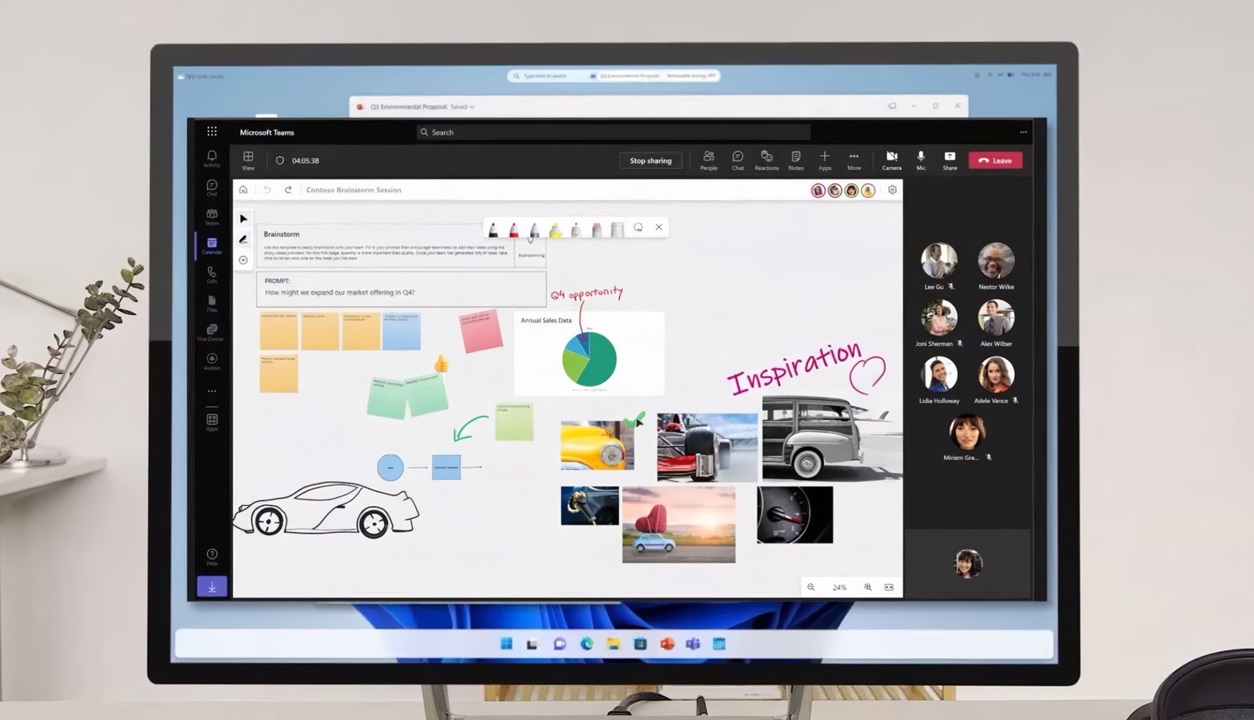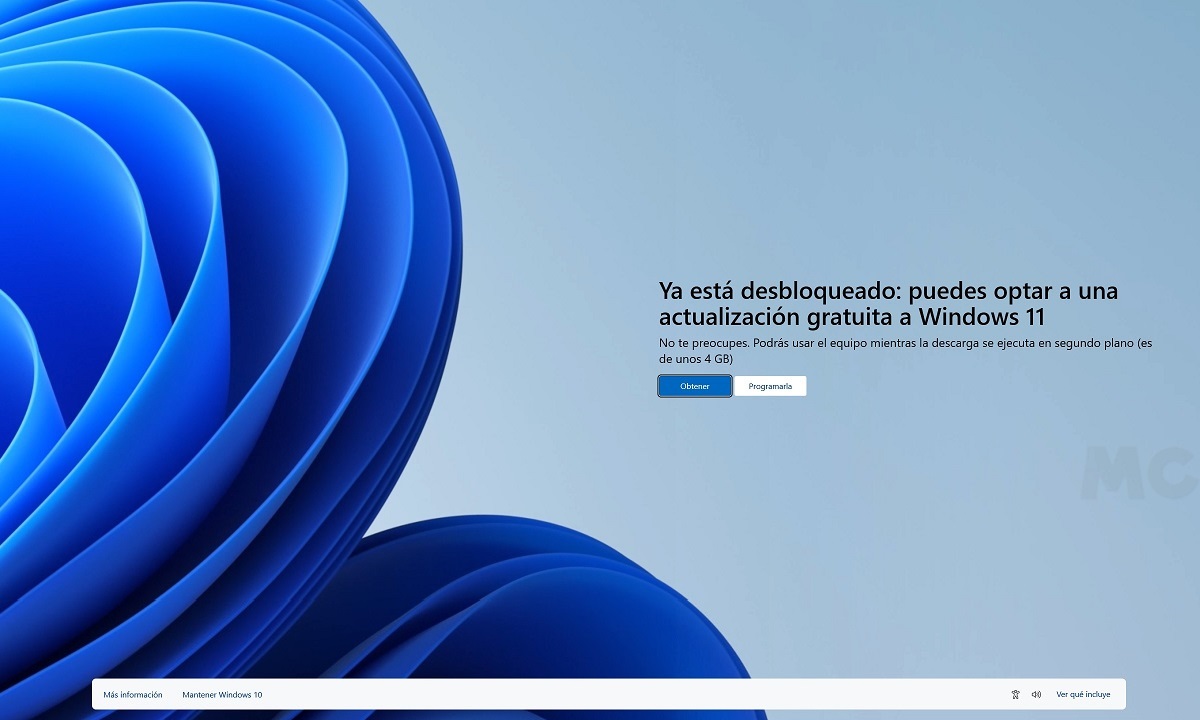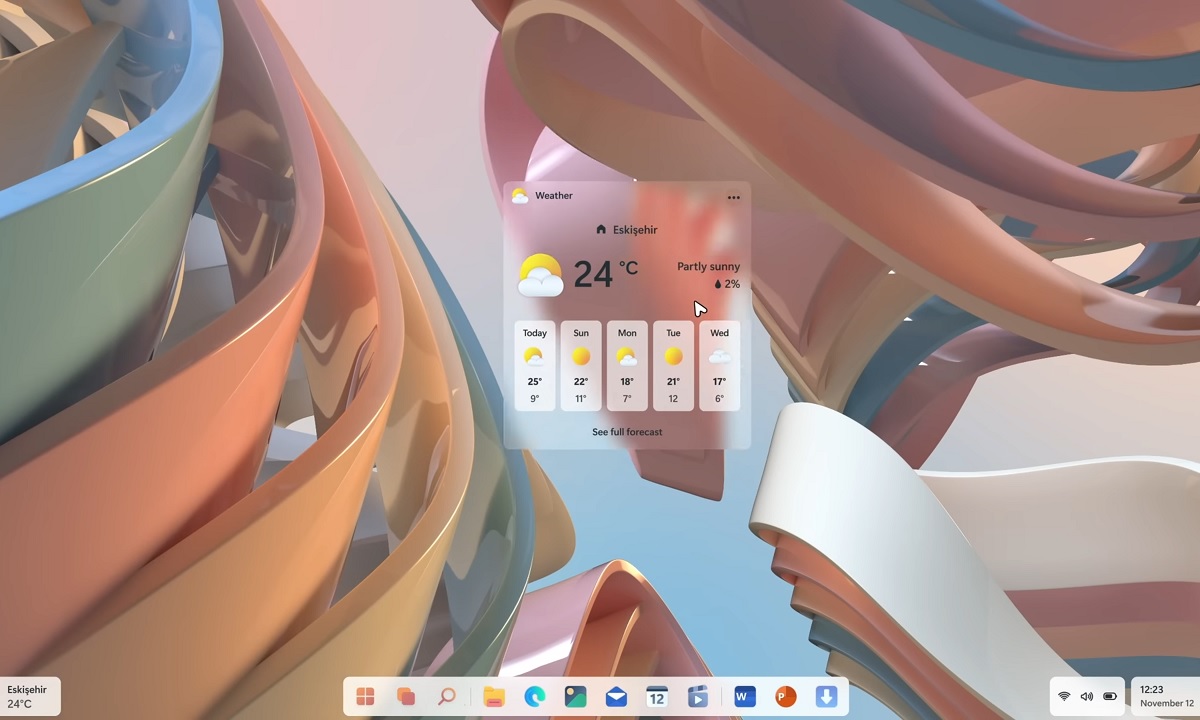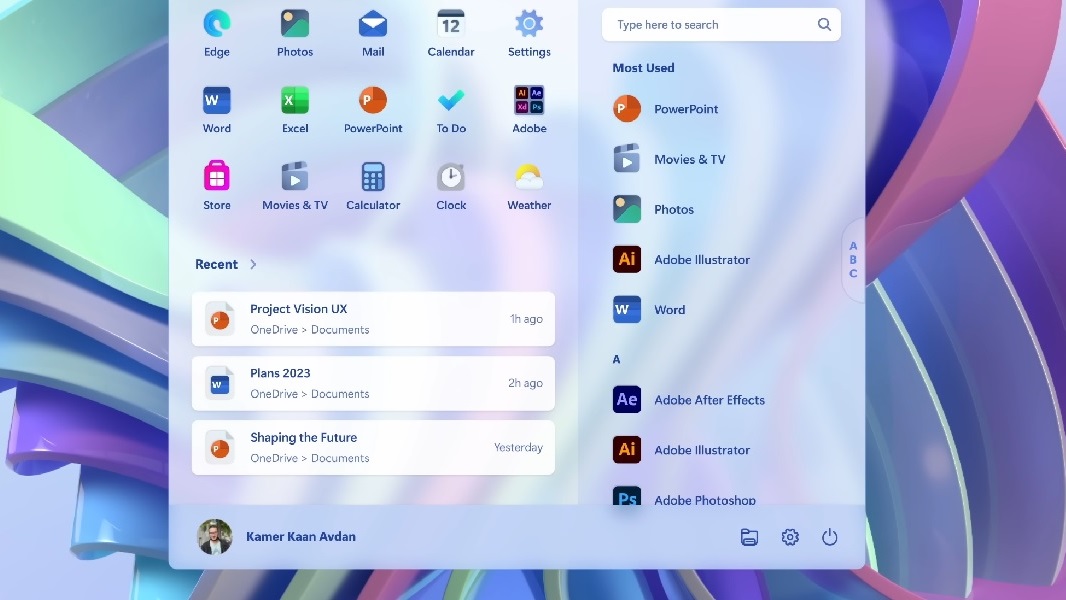What will happen with Windows 12, everything we know so far
- March 5, 2024
- 0
Windows 12 is the name by which Microsoft’s next operating system is known, although it’s important to remember that the Redmond giant did not confirm this nameand that
Windows 12 is the name by which Microsoft’s next operating system is known, although it’s important to remember that the Redmond giant did not confirm this nameand that

Windows 12 is the name by which Microsoft’s next operating system is known, although it’s important to remember that the Redmond giant did not confirm this nameand that he also never explicitly said that he was working on it, or that he planned to launch it in the short, medium, or long term.
There have been many indications that Windows 12 could arrive this year, specifically at the end of 2024. everything made senseon the one hand, it fit in with information given by giants like Intel, who dropped that a major Windows refresh was coming later this year, and on the other hand, it made the most sense given the wave of AI-specific hardware we’re living with.
However, in the end, Microsoft decided to go a completely different route than we expected and decided to announce it major update for Windows 11. Windows 12 will not arrive at the end of this year, what we will see will be a 24H2 update that will be characterized by a strong commitment to AI and will represent a very significant evolution of the said operating system.
The 24H2 update brings some of the keys we’ve come to expect in Windows 12, and arguably the most important is the commitment to AI. I already told you then some of the most interesting new features that this update will bring, among them we can highlight DirectSR support, which will allow the use of intelligent rescaling to improve performance, and Full integration of Copilot into the operating system.

Well, right now it remains in limbo, meaning that since Microsoft never officially announced it, we can’t say it’s been canceled. However, when we see what the company has done with Windows 10 and Windows 11, it is clear we will most likely see a new Windows eventually sooner or later.
This is not necessarily called Windows 12, Microsoft You may choose to use a completely different nomenclatureor even by removing the numbers entirely and doing some sort of reset where those numbers would only be used internally to identify versions and updates. In short, yes, there will be a new Windows, but its name has not yet been confirmed.
Again, nothing is confirmed, but I’m pretty sure we’ll have to wait at least until the end of official Windows 10 support, a very important event that is scheduled for October 2025. From this date, the mentioned operating system will be completely abandoned and will no longer receive security patches and bug fixes.
Microsoft can decide offers extended support for Windows 10but it will be limited to certain clients and conditions and will be paid, so realistically the life of this operating system will close in October next year on a general level and in a completely official way, which has already happened before with other operating systems such as Windows 7.
Because he’s not interested, and because it would be counterproductive. Right now Microsoft has the market two operating systems, Windows 10 and Windows 11. The first continues to have a larger share than the second, which has not yet made a profile and, compared to the famous and popular Windows 7, has a lower adoption than Windows 10 at that time.
It is obvious that this Running a third operating system is not the best scenario. Microsoft knows this and will wait at least until the end of Windows 10 to take advantage of that user base that will be looking for an alternative to Windows 10 and does not want to upgrade to Windows 11. great plan because Windows 12 will be the alternative they need, and this strategy could give this operating system a pretty solid start.

Although it is not confirmed We have every reason to think so. Upgrading to Windows 10 was free from Windows 7 and Windows 8.1, and upgrading to Windows 11 was also offered for free, so we have no reason to think Microsoft will do anything different with Windows 12.
On the other hand, we have to remember that Microsoft is already having trouble convincing a large part of its users to upgrade by giving away its new operating system, so imagine what would have happened if it hadn’t resorted to this promotion. Those at Redmond are always looking to accelerate the adoption of their new operating system, and what matters is the numbers of new users, more than total sales, because Microsoft has long since stopped depending on direct revenue from Windows sales.
We also have every reason to think that this will be the case. Microsoft has moved from a semi-annual model to an annual one, as development deadlines for major updates are six months away They were really crazy. This was noted in many ways, although undoubtedly the most controversial and controversial was the low quality of said updates and problems with which they reached the user final.
The transition to a model of annual updates gave more time for Microsoft to better polish these updates, and also introduce more important improvements that make them more interesting. The problem of bugs going unnoticed and creeping into the final versions of these updates has not been completely overcome in the end, but it is clear that this model works better than the previous one, so it will be the one we see in Windows 12.
AND native and full integration of Copilot in Windows 12 In this sense, it could undoubtedly be the most relevant, since it would make it an operating system for the smart home, and not a version modified through an update, which will happen in Windows 11 with the release of a patch. 24H2, planned for the end of this year. With an operating system designed from the ground up to use AI, the user experience can change drastically.
I can think of a lot of things that could be revolutionary, such as automatic error resolution function with simple instructions for Copilot or even automation of certain tasks that would ultimately save us a lot of time and even the ability of this AI to identify our work and provide us with support without having to ask for it, thanks to the previous process of learning and adapting to our daily tasks.

We should not expect a radical change at the level of the interface, but rather small adjustments that will be based on the same basis that we saw in Windows 11, and which will focus on improve and improve this interface. The first Windows 12 concept videos we’ve seen in recent months show pretty accurate ideas of what the operating system could generally be.
Most likely Microsoft start from that minimalist base that characterized Windows 11 and that the most important changes focus on things like the taskbar, which could be floating to achieve a cleaner surface, and also start menu, which would be closer to the format we saw in Windows 10 because Windows 11 caused a lot of rejection.
This is a very difficult question to answer, especially since there are many options that make sense and could be perfectly filled. We can be sure of one thing, and that is Windows 12 system requirements will be at least as high as Windows 11 system requirements, That said, we won’t see a step back in that sense. So if you can move Windows 11, you can most likely install Windows 12 as well.
This is mine estimate from possible Windows 12 requirements:
As artificial intelligence continues to move forward unstoppably, I have an interesting theory that also turns out to be quite reasonable, and that is that I believe the Redmond giant will eventually give advanced support for specialized AI hardwaresuch as NPUs which include the latest processors and APUs from Intel and AMD such as Meteor Lake and Ryzen 7040 and Ryzen 8040. Please note that will be optional and that it won’t prevent you from installing Windows 12 on a non-NPU system.
We saw some rumors pointing in this direction a while back, but Microsoft hasn’t confirmed anything yet, so we can’t say for sure. To make it clear so that there is no doubt, this needs to be acknowledged the thought makes senseespecially now that we’ve seen Samsung make a move on this and say they think so fee for using Galaxy AI.
Galaxy AI offers a suite of AI-powered features that greatly enhance the potential of their Galaxy S24 smartphones. Microsoft could take a similar approach, i.e. offer advanced AI features with Windows 12 that would be exclusive and limited to those willing to pay a monthly fee. Failure to pay this fee would not prevent you from using the operating system.

No, it won’t, and I don’t think Microsoft would force an update in the same way they did with Windows 10 at the time, because that would only create significant controversy that would ultimately end up creating wrong image to your new operating system. The Redmond giant has learned a lesson in this regard, and for the update we will have to make this decision ourselves and “try” a little.
But that wouldn’t stop Microsoft display an ad encouraging Windows 11 users to upgrade to the new operating system for freesomething that it does with Windows 11 in Windows 10, and it will certainly be extended to Windows 12. This has also caused discomfort among users, but it is less aggressive than the model used with Windows 10, because it ended up leading to unwanted updates.
We don’t have an exact date, but from the end of next year. Microsoft may decide to launch Windows 12 right after support for Windows 10 ends, or it may even decide to wait a reasonable amount of time and move to the second half of 2026, although the latter I see this as unlikely, especially due to AI pressure and vested interests what is around this.
I would guess at the end of next year and on the topic of price I don’t think Microsoft will move too far from the price that Windows 11 had, because, as I told you before, the revenue of the Redmond giant ultimately depends not so much on the direct sale of its operating system, but on its services and everything that surrounds it and what it is interested in maintaining as a dominant operating system.
BrenTech cover photo.
Source: Muy Computer
Donald Salinas is an experienced automobile journalist and writer for Div Bracket. He brings his readers the latest news and developments from the world of automobiles, offering a unique and knowledgeable perspective on the latest trends and innovations in the automotive industry.